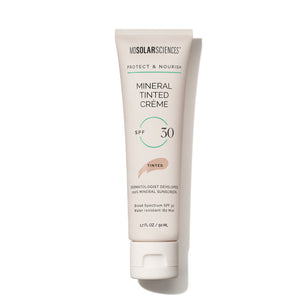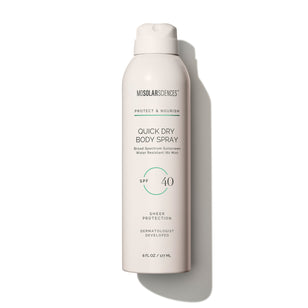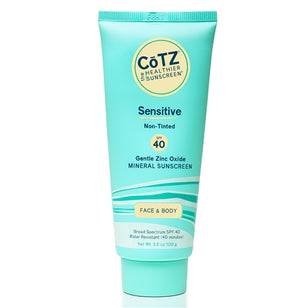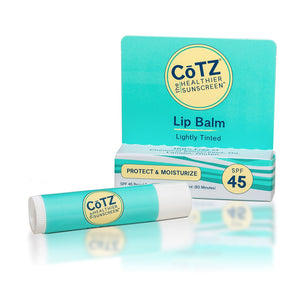Natural Sunscreen Guide: Backed by Scientists

Do you know the difference between natural and chemical sunscreen? There's so much information on the internet today about different sunscreen that it can get overwhelming. Words like "natural", "broad-spectrum", "reef-safe" and "sensitive" can be confusing at times.
To help, we created the ultimate natural sunscreen guide to right some common misconceptions and answer your frequently asked questions about all things natural sunscreen.
What Is Natural Sunscreen?
Natural sunscreen, or mineral sunscreen, is sunscreen derived from natural ingredients such as minerals like titanium dioxide or zinc oxide. These ingredients are approved by the FDA for their ability to provide your sunscreen with a natural SPF.
Natural Sunscreen Versus Chemical Sunscreen
Natural sunscreen is made from minerals like titanium dioxide and zinc oxide and is often a combination of the two. Chemical sunscreen typically contain ingredients like avobenzone, octocrylene, octinoxate, and oxybenzone. These are organic compounds that absorb UV radiation and transform it into heat, which is then released from your skin. These compounds work by absorbing either UVA, UVB, or both types of ultraviolet rays.
The mineral compounds in mineral sunscreen act as physical UV blockers. These compounds sit on the skin's surface, reflecting and scattering UV rays away from your skin.
The debate about whether you should use natural versus chemical sunscreen continues today. Many people still use chemical sunscreen today although some health concerns have been raised about some of the ingredients in these sunscreens.
It's important to note that people respond to sunscreen and skincare differently in general, so it's best to use what works best for your skin. And do your research on various sunscreen brands!
If you're looking for natural sunscreen and are worried about the chemicals in chemical sunscreen, you're in luck. We offer a variety of natural sunscreen available for purchase online.
What Are the Pros of Natural Sunscreen?
Sun protection is essential for skin health and natural sunscreen offers various benefits for anyone who has sensitive skin or environmental concerns. The benefits of natural sunscreen include:
- Less likely to cause skin allergies and irritation
- Many are reef-safe and don't harm marine eco-systems
- Broad-spectrum (protect against UVA and UVB rays)
What Are the Cons of Natural Sunscreen?
Natural sunscreen can give you a thick, white cast, which can make it difficult to apply. It can also leave a white residue on your face, especially when you get wet. Mineral sunscreens are also less water-resistant than chemical sunscreens so you need to reapply them more often.
What Are the Pros of Chemical Sunscreen?
Chemical sunscreens are more water and sweat resistant overall. Also, as these types of sunscreen are easier to apply and don't leave a white residue, many people prefer them over natural sunscreen.
What Are the Cons of Chemical Sunscreen?
Some of the chemicals in chemical sunscreen have been shown to disrupt your hormones; however, more testing needs to be done, according to the FDA. For now, the FDA encourages sunscreen over not wearing any type of sun protection at all.
Is One Type of Sunscreen Better Than the Other?
This question has faced a lot of debate online. We consider the best sunscreen to be the one you will actually wear and reapply. There are plenty of options to choose from, so remember to put on sunscreen and UPF clothing/swimwear before going outside to protect your skin.
Natural Sunscreen We Recommend
We sell two brands here at UV Skinz that are dermatologist tested, chemical-free, reef-safe, and sustainably made: CoTZ and MDSolarSciences. Here are the specifics on both:
CoTZ Sunscreen
- Gluten free
- Preservative free
- Reef friendly
- Mineral protection
- Animal test-free by PETA
- Vegan
MDSolarSciences
- Dermatologist developed and clinically tested
- Sustainably made
- Reed-safe minerals
- Invisible formula












